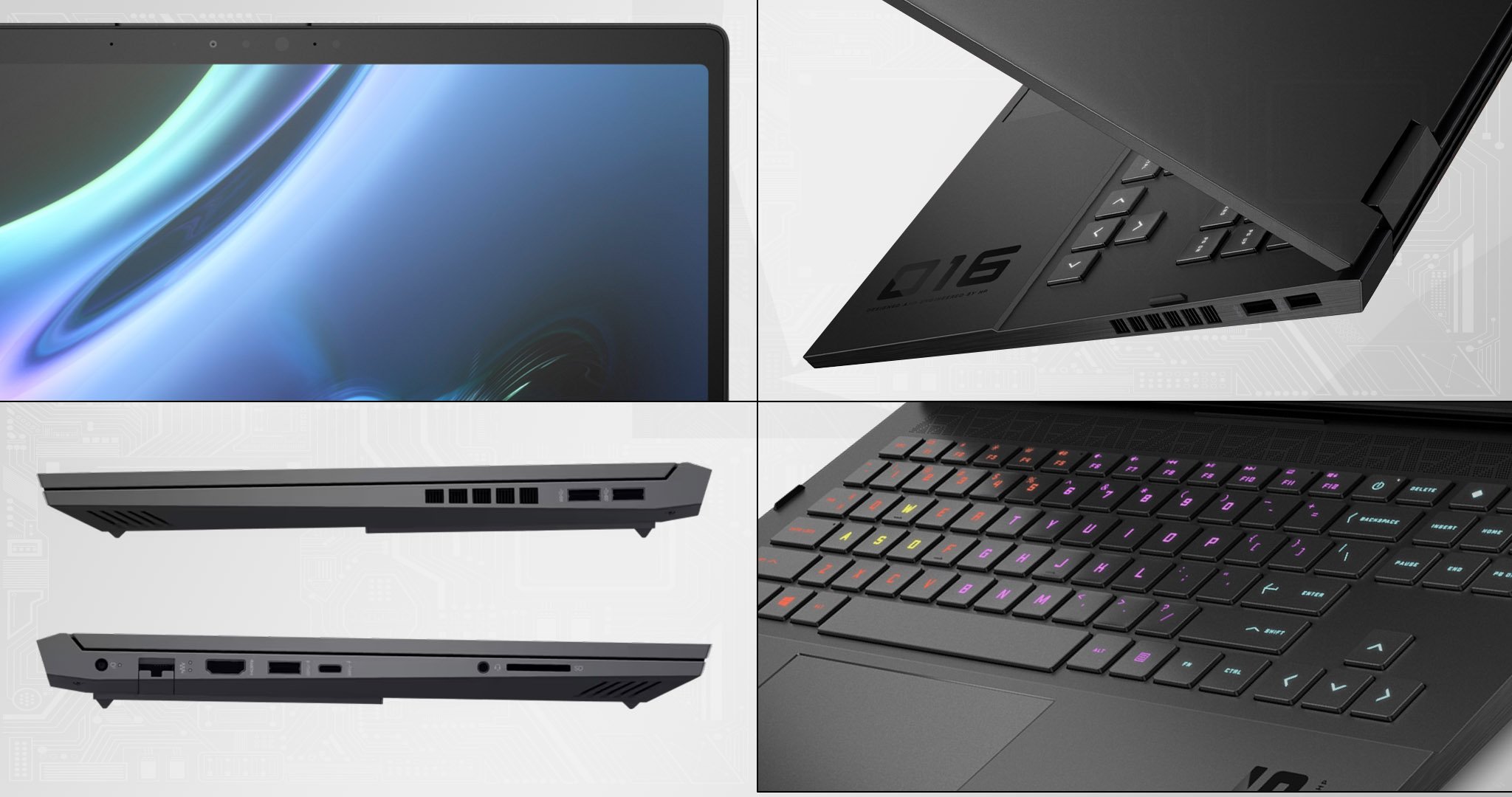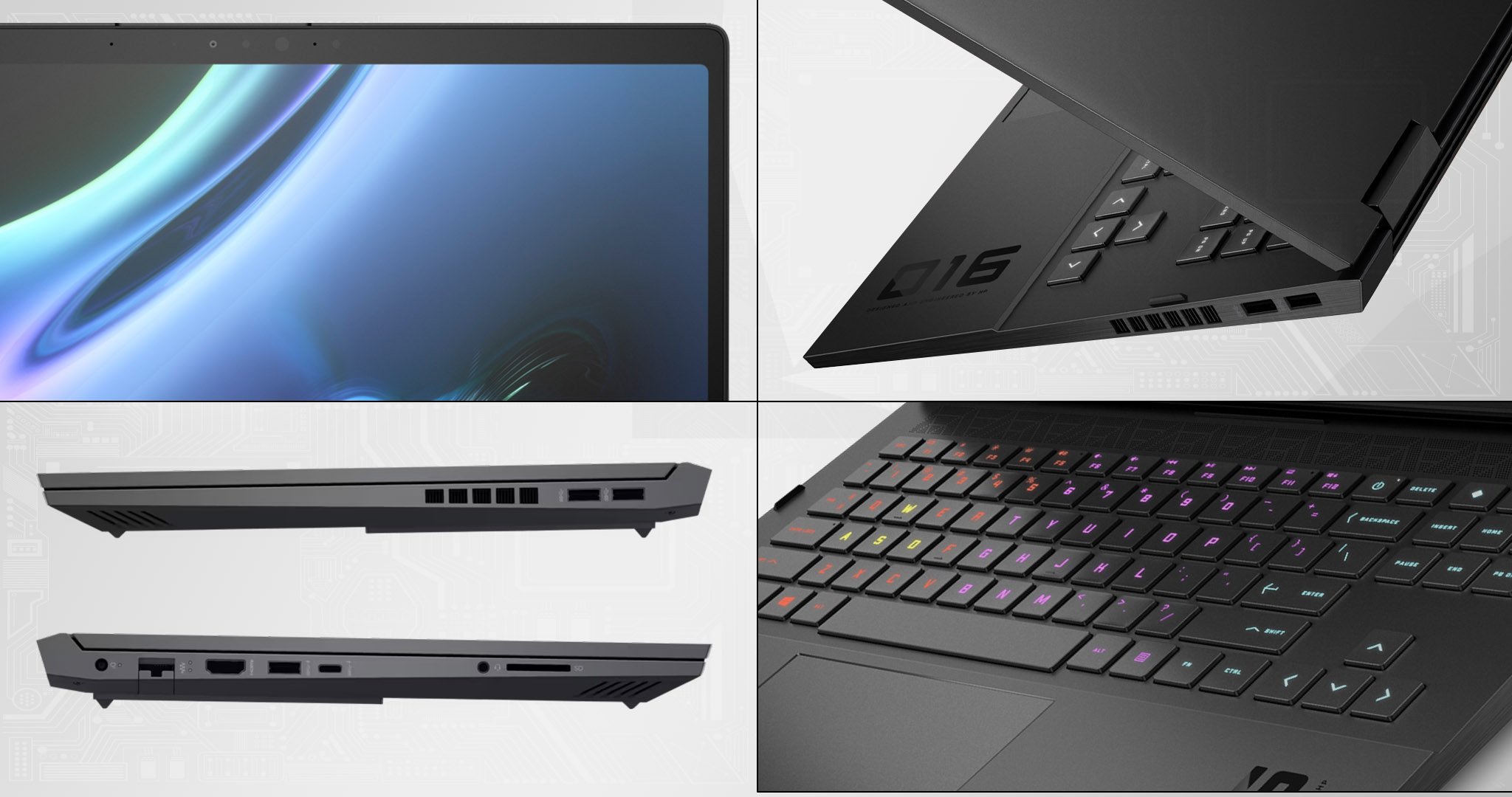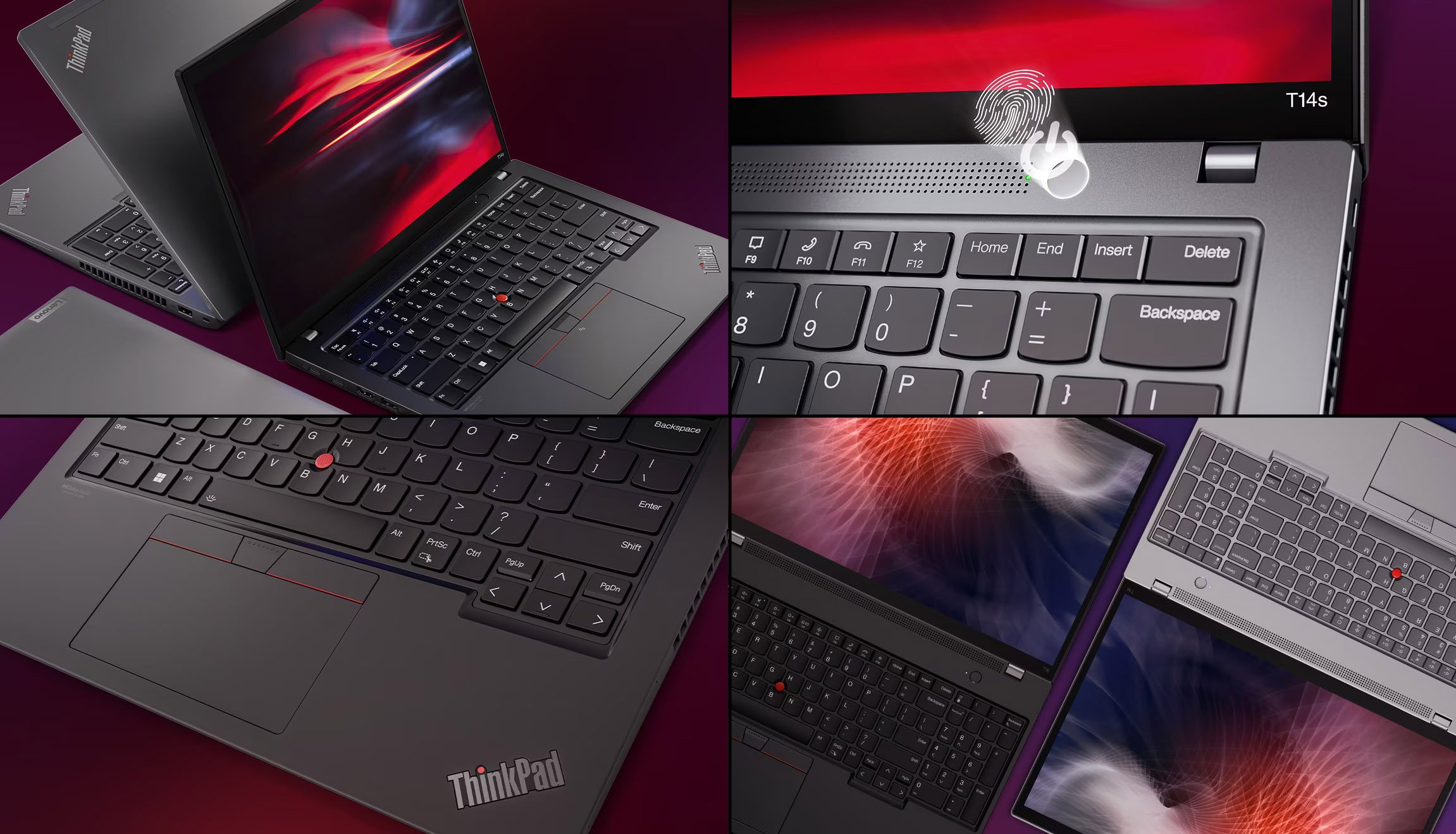
Lenovo and HP are, without a shadow of a doubt, amongst the finest and most capable OEMs out there.
Alongside Dell and, perhaps, ASUS, they’re the ones that immediately spring to mind whenever someone starts talking about Windows laptops — and, well, naturally so.
These two companies have been industry leaders for what feels like an eternity and, by the looks of it, that isn’t going to change any time soon (if ever).
Their portfolios are incredibly diverse and, while they do differ in certain regards, it’s fair to say that they have more in common than they’d like to admit.
With such large OEMs, an overlap of sorts simply has to exist as they always tend to compete on the exact same “fronts.” They cater to each and every single target demographic: business users, creative professionals, gamers, content creators, productivity workers, and everyone in between.
The good thing about having such a diversified product stack is that no stone is left unturned and no base is left uncovered. The bad thing, however, is that picking the “right” model isn’t nearly as simple or straightforward as one would expect.
Both Lenovo and HP have a myriad of seemingly different laptops which, for better or worse, overlap in both their design and their features. This makes picking one over the other a much greater challenge than it has any business being.
Fortunately, both companies are currently held in very high regard by both consumers and the media alike, so you really can’t go wrong with either one.
Lenovo vs HP — Which One Is Better?
As already mentioned, Lenovo and HP are very much entrenched in the OEM pantheon; they’ve been leading the market for well over a decade, and their sales numbers and overall reach speak for themselves.
There’s very little to fault them for although, to be fair, it’s not like all of their products and laptops warrant a recommendation. Far from it.
The quality of their devices tends to vary from one generation to the next, which stresses the importance of reading and watching as many reviews as you possibly can before making any kind of purchasing decision.
Their laptops are incredibly well-built, they’re cooled properly, they don’t sound like jet engines taking off when pushed to their limits, and they come with respectable port selections and keyboards which are simply a joy to type on.
Then again, these strengths and virtues are by no means universal. The model you’re looking at might just be a “dud.” Someone once said that there are no bad OEMs, just bad products — and we couldn’t agree more.
No company or OEM is exempt from making mistakes. Even Apple, whose products are widely considered as “best-in-class” for a certain demographic, has had horrendous blunders.
And so, with that in mind, it’s nigh impossible for one to go out and make any kind of definitive statement and favor one manufacturer over the other — they’ve all had their fair share of slip-ups and oversights.
As already mentioned, it all varies from one product (or product generation) to the next.
The good news is that both Lenovo and HP haven’t made nearly as many mistakes as some of their competitors. That’s not to say that they’ve been perfect (because they very much haven’t), but rather that they’ve earned one’s trust and the reputation which follows them.
Lenovo, however, has had more wins than HP in the last couple of years. Moreover, some of its laptops — primarily those targeted towards creative professionals and gamers — can only be described as best-in-class.
HP, while certainly a stellar choice, doesn’t have nearly as many standout models, but more on that down below.
Lenovo vs HP — Something For Everyone
Much like all other OEMs, both Lenovo and HP have all their “bases” covered. They have a laptop on offer for every kind of user which, needless to say, is both good and bad.
It’s good, obviously, because there’s a much lower barrier to entry; anyone, regardless of their budget, can find something that would fit their needs.
It’s bad, however, because there’s a tremendous difference in both performance and build quality between their higher-end and lower-end models.
If you buy a low-cost HP Pavilion or, say, an equivalent IdeaPad model from Lenovo, you’re not really going to experience the best which these OEMs have to offer.
Such laptops, affordable though they are, range from bad to downright awful. They cut too many corners to bring the price down and, as such, cannot offer an enjoyable user experience.
Their displays are dim and washed out, their chassis are made of plastic, their hinges might squeak and wobble, and their performance, while generally sufficient, will leave you wanting the moment you start doing anything more demanding.
Case in point:
Lenovo, one could argue, has stepped up big time in this regard, and has started offering much more impressive spec sheets and features without that incurring any kind of price hike.
Almost all of its mid-tier models now have respectably bright and color-accurate displays, and their build quality warrants some praise as well.
They’re not going to blow your mind with their craftsmanship, but these laptops are now much better than anything you could’ve bought a few short years ago for the same amount of money.
Moreover, its laptops — even the newest and most powerful ones — tend to go on sale quite regularly, and if you decide to buy your laptop of choice from Lenovo itself (through the official website, as opposed to a retailer like Amazon or Best Buy), you’ll get a 10% discount by default.
Its laptops are incredibly well-rounded and, needless to say, the higher up the product stack you go the better they get. Lenovo has a much larger gamut of options (differing lines, sub-brands, SKUs, etc.) when compared to HP and, frankly, most of them really are worth the asking price.
HP, on the other hand, seems more focused on the business segment of the market, and that is precisely the area in which they compete on even footing with a veritable giant like Lenovo.
For other kinds of users — content creators, creative professionals, gamers, and high productivity workers — Lenovo definitely has an upper hand.
To see one of its latest creator-focused laptops, make sure to watch the following video:
Lenovo vs HP — Who Makes the Best Business Laptops?
That’s a hard question to answer as, frankly, both companies are incredibly competitive in this particular segment of the market. Lenovo has its ThinkPads and ThinkBooks, HP has its EliteBooks, Probooks, and Dragonflies.
They both have regular clamshell designs but also 2-in-1 hybrids with numerous security and privacy-related features, vPro processors, and so on and so forth.
They’re not all worth the asking price, though:
As always, it all depends on your budget, design preferences, and overall needs. ThinkPads have been the go-to choice for millions upon millions of users (and businesses) across the globe and, needless to say, their reputation precedes them.
Even though they’re not all built the same (nor do they offer the same kind of user experience), they still deserve a glowing recommendation.
They’re robust, built to last, and offer an incredible overall experience; just make sure to buy one while it’s on sale as they can get quite pricey.
Lenovo vs HP — Which Is Better for Content Creation?
That’d be Lenovo and, frankly, it’s not even remotely competitive. HP, to be fair, does have a bunch of really alluring creator-focused laptops on offer, but they’re nowhere near as well-rounded and, at times, rationally priced as those from Lenovo.
Lenovo’s most recent Slim Pros (or YOGA Pros, depending on the region) are downright spectacular, both in regards to performance and build quality. They’re one of the few viable alternatives to the wildly popular 14”/16” MacBook Pro and, needless to say, that alone speaks volumes.
You also have P-series ThinkPads which are essentially full-fledged desktop replacements (akin to HP’s ZBook workstations) and even a bunch of incredibly powerful LEGION gaming laptops which can also do double duty for 3D rendering, modeling, game development, and everything in between.
All in all, Lenovo and ASUS are the only OEMs at the time of this writing who have truly spectacular laptops for content creators and creative professionals — portable powerhouses which can be recommended without hesitation.
Lenovo vs HP — Which Is Better for Gaming?
This, too, is where Lenovo stands out. Its LEGION laptops are amongst the most popular on the market and, well, with very good reason.
They’re incredible performers, they’re built well, they’re cooled properly — unlike most of HP’s gaming laptops — and, perhaps most surprisingly, they’re often reasonably priced.
HP’s OMEN and Victus lines are quite solid, but they sacrifice build quality and certain creature comforts which, needless to say, tends to diminish the overall user experience.
Depending on the SKU, they might also run a bit too hot and loud which, needless to say, diminishes their overall allure.
Lenovo simply has more to offer in every conceivable way, and the incredible sales numbers of their LEGION laptops are a telltale sign that these devices resonate greatly with their target demographic.
There’s also the more affordable LOQ line which offers a nice balance of features and performance — with a few cut corners, of course.
If you’re interested in seeing Lenovo’s most powerful gaming laptop in action, make sure to watch the following video:
Conclusion
Both Lenovo and HP are amongst the most revered and capable OEMs out there. That much is a fact. Now, given the sheer number of laptops which they have on offer, it’s fair to say that they don’t always stick the proverbial landing.
As is so often the case, you get what you pay for. Lenovo does seem like the better pick if you’re working with a constrained budget, and, well, much of the same holds true for its higher-end models as well.
There’s very little to fault them, really, and we’re especially impressed with Lenovo’s willingness to iterate year-over-year — most other OEMs tend to play it safe, whether for a lack of courage or for their own budgetary constraints and limited RND money.
HP, to its credit, is still a very large and capable “player,” and its respectable market share tells the same tale. It’s a well-known and respected brand, and its laptops do, for the most part, warrant one’s attention.
Still, it kind of feels like there’s a lack of urgency on HP’s part. We’ve seen very few impressive designs over the last few years, which signals where its priorities lay: premium ultrabooks, business users, and corporations both large and small.
Its Spectre and ENVY lines really are phenomenal, and there are even a few affordable gems within the Pavilion Aero umbrella. Whether that’s enough to sway one away from Lenovo is heavily up for debate, but one has to give credit where it’s due.
In any case, Lenovo’s offerings are a fair bit more alluring, and there’s a much wider gamut of options to choose from as well.
This venerable OEM has really stepped up big time over the last few years and its portfolio of products — which was always quite commendable — has never been better and more well-rounded. There are obviously a few duds, but for the most part, it’s about as impressive as it gets.
And, as always, no matter which model or OEM you end up going with, make sure to buy your laptop of choice from a retailer like Amazon or Best Buy; they have incredibly lenient return policies which means that, if you’re unsatisfied with your purchase or, even worse, you happen to find a QC issue, you’ll be able to return your laptop and get your money back in no time.
FAQ
Let’s go over a few potential questions you might have regarding this particular topic:
Lenovo vs HP — Which Is Better?
They’re somewhat evenly matched, but Lenovo does have a much broader range of laptops on offer and, for the most part, they tend to be better cooled and have a higher level of performance when compared to HP’s equivalent offerings.
It’s not all black-and-white, though, as these things tend to vary greatly from one model and product generation to the next.
In any case, Lenovo is our preferred choice; the fact that it’s been the number one OEM in regards to market share for a decade straight speaks volumes.
If you’re a business user, a productivity worker, a gamer, or a creative professional, you really can’t go wrong with Lenovo. Just make sure to do a bit of digging on the particular model you’re interested in as they’re not all worth the asking price.
Are HP Laptops Any Good?
They absolutely are! They’re not particularly exciting, though.
HP hasn’t been innovating all that much, and it sure has been a hot minute since the last time it came out with anything truly extraordinary. Be that as it may, its ultrabooks are still, to this day, amongst the finest and most well-built on the market.
As such, they do warrant a recommendation.
Who Makes the Better Creator Laptops: Lenovo or HP?
Lenovo is definitely the better option if you’re a content creator or creative professional.
HP, too, has a few solid models in its portfolio, but they pale in comparison to Lenovo’s most prominent offerings.
Frankly, HP doesn’t seem to be all that interested in competing in this particular segment of the market, which has given Lenovo and ASUS a pretty big opening — an opening which they very much capitalized on.
To learn more about one of Lenovo’s standout models, make sure to watch the following review:
Who Makes the Better Gaming Laptops: Lenovo or HP?
Those looking for beastly, spec’d-out gaming laptops — or, conversely, performant budget ones — should look no further than Lenovo. It’s not the only option (ASUS, Alienware, Razer, and even Acer warrant a mention), but it sure is amongst the most popular.
HP’s gaming laptops are by no means bad or horrendous, but they’re just not as well-tuned or well-rounded as most other competing products.
Lenovo’s gaming laptops, while by no means the best built or most beautiful, tick all the right boxes. To learn more about one such model (in two different configurations), make sure to watch the following video:
Who Makes the Better Business Laptops: Lenovo or HP?
That’s a nigh impossible question to answer.
Lenovo’s business laptops are, generally speaking, more popular and more beloved, but HP, too, has a myriad of different models on offer, all of which warrant an equal amount of attention. They’re not all as well-tuned as we’d like, but the ones that are sure do stand out from the crowd.
In any case, they’re definitely worth your time and attention.
Over to You
Which OEM do you prefer and why? Did you ever own any of their laptops and, if so, what was that experience like? Let us know in the comment section down below and, in case you need any help, head over to our forum and ask away!








